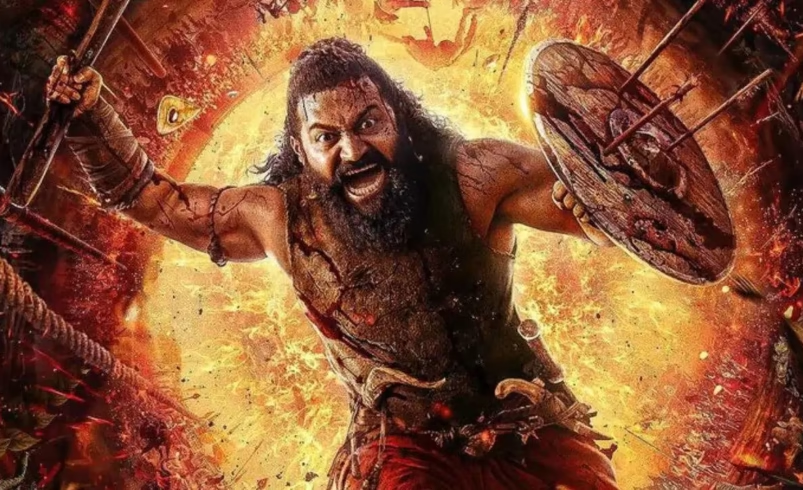Hombale Films appeals for respect toward ‘Daiva’ traditions in Kantara
- October 7, 2025
- 0

The creators of *Kantara: Chapter 1* have issued a public appeal urging fans to refrain from imitating or performing as the ‘Daiva’ characters depicted in the film. The statement from Hombale Films emphasizes that these portrayals are rooted in sacred cultural practices deeply revered by the Tulu community, and any casual imitation risks offending religious sentiments.
Following the release of *Kantara: Chapter 1*, several viewers began recreating scenes and costumes inspired by the film’s depiction of ‘Daiva’ figures. In response, Hombale Films released an official clarification underscoring that these divine representations are not fictional inventions but part of a centuries-old spiritual tradition observed with great devotion in coastal Karnataka. The studio urged audiences to approach such elements with sensitivity and understanding rather than as material for entertainment or social media trends.
In its message, Hombale Films highlighted that *Kantara* was created with profound respect for regional beliefs and rituals. The filmmakers explained that the inclusion of ‘Daiva’ traditions was intended to celebrate their spiritual significance, not to invite imitation or parody. They reminded fans that these customs hold deep meaning within the Tulu community, symbolizing ancestral worship and divine connection, and must therefore be treated with reverence both on and off screen.
The studio’s statement also reflected growing concern among members of the Tulu-speaking community, who expressed discomfort over casual portrayals of sacred figures on social media platforms. Many felt that such actions trivialized rituals performed with solemnity during traditional ceremonies. By addressing these concerns publicly, Hombale Films sought to reaffirm its commitment to preserving authenticity while discouraging behavior that could unintentionally hurt cultural sentiments.
*Kantara: Chapter 1* continues the thematic exploration introduced in its predecessor, blending folklore, spirituality, and human emotion through cinematic storytelling. The filmmakers clarified that every element involving ‘Daiva’ worship was carefully researched and presented with guidance from local experts familiar with the tradition’s nuances. Their goal was to honor indigenous practices through artful representation rather than reinterpret them for popular consumption or imitation.
Hombale Films concluded its appeal by encouraging audiences to appreciate *Kantara* as a work of art inspired by faith and heritage while maintaining respect for the communities whose traditions it portrays. The studio urged fans to celebrate the film’s message without crossing boundaries that could diminish its cultural essence or offend those who hold these rituals sacred.
Through this reminder, the makers reinforced an important principle — cinematic admiration should never come at the cost of cultural integrity. Their statement serves as both a clarification and an invitation for viewers to engage thoughtfully with stories rooted in spiritual heritage, ensuring that reverence remains central to artistic appreciation.